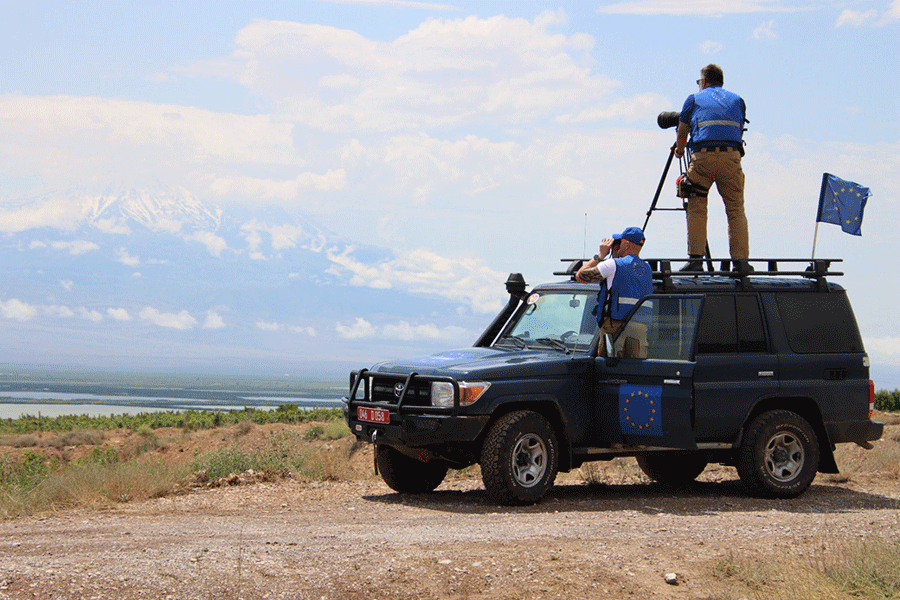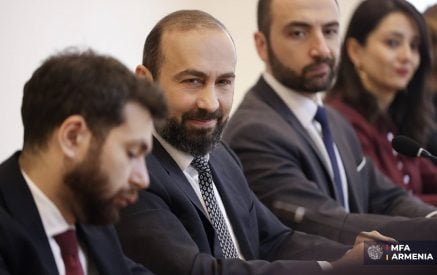The Armenian parliament approved on Wednesday the government’s decision to essentially grant diplomatic immunity to members of a monitoring mission launched by the European Union along Armenia’s border with Azerbaijan a year ago.
A relevant Armenia-EU agreement ratified by the National Assembly not only gives the EU monitors immunity from prosecution but also guarantees their freedom of movement inside the country, exempts them and their equipment from Armenian customs checks and bans law-enforcement authorities from searching their offices and vehicles. In addition, it commits Yerevan to guaranteeing their personal security and ensuring, if necessary, their free evacuation from the country.
“Armenia attaches great importance to this and all other initiatives aimed at deepening our security cooperation with the European Union,” Deputy Foreign Minister Mnatsakan Safaryan said on Tuesday as he presented the agreement to lawmakers for ratification.
The EU mission was launched in February 2023 at the request of the Armenian government and with the stated aim ofpreventing or reducing ceasefire violations along the Armenian-Azerbaijani border. The EU decided late last year to increase the number of its members from 138 to 209.
Read also
Russia, Armenia’s increasingly estranged ally, has opposed the mission from the outset, saying that it is part of U.S. and European Union efforts to drive Moscow out of the South Caucasus.
Azerbaijan has also been critical of it. Last month, the Azerbaijani Foreign Ministry summoned the EU ambassador in Baku to challenge the impartiality of the European monitors and warn them against causing “damage to Azerbaijan’s territorial integrity.”
Prime Minister Nikol Pashinyan’s government has repeatedly defended the mission, saying that it has succeeded in easing tensions along the long and volatile border. Hayk Konjorian, the parliamentary leader of Pashinian’s Civil Contract party, expressed the government’s “unequivocal satisfaction” with the mission during Tuesday’s debate on the ratification of the agreement.
The document was backed by 57 parliament deputies representing Civil Contract. Twenty-seven opposition deputies abstained from the vote.
Several deputies from the main opposition Hayastan alliance voiced reservations about granting the EU observers the special status which is not enjoyed by Russian troops and border guards stationed in Armenia. In particular, they noted that the agreement says nothing about the monitors’ mandate.
Hayastan’s Gegham Manukyan was concerned about the fact that the agreement allows monitors from non-EU countries to join the mission. “There is no restriction that bars a country like Turkey from becoming part of this mission,” he said.
Parliament vice-speaker Ruben Rubinian assured Manukian that the EU cannot hire monitors from “third countries” without Yerevan’s consent. “This is regulated by an understanding between Armenia and the EU,” said Rubinyan.























































